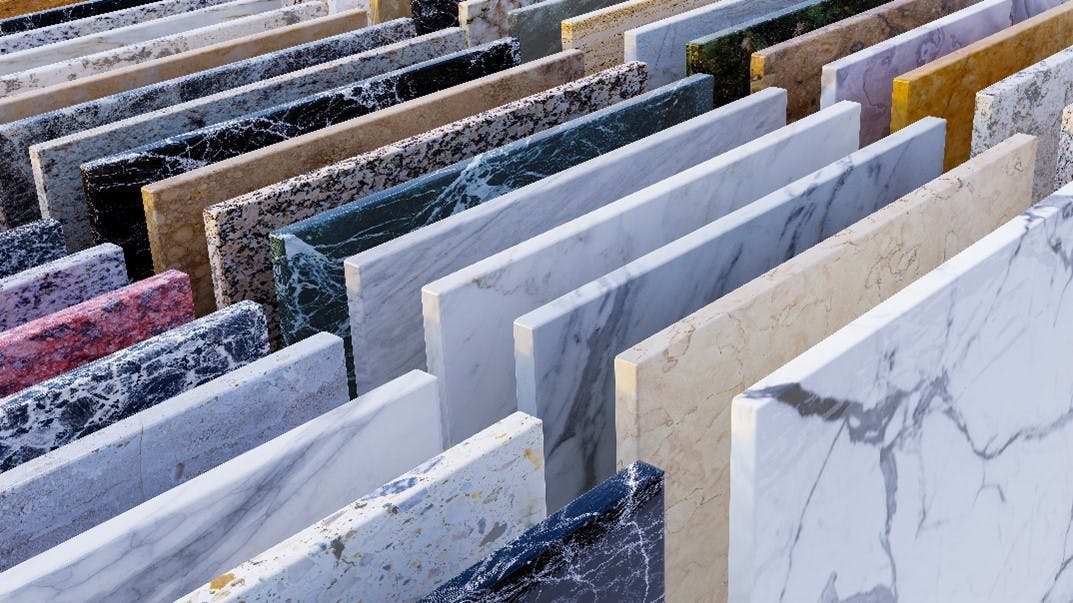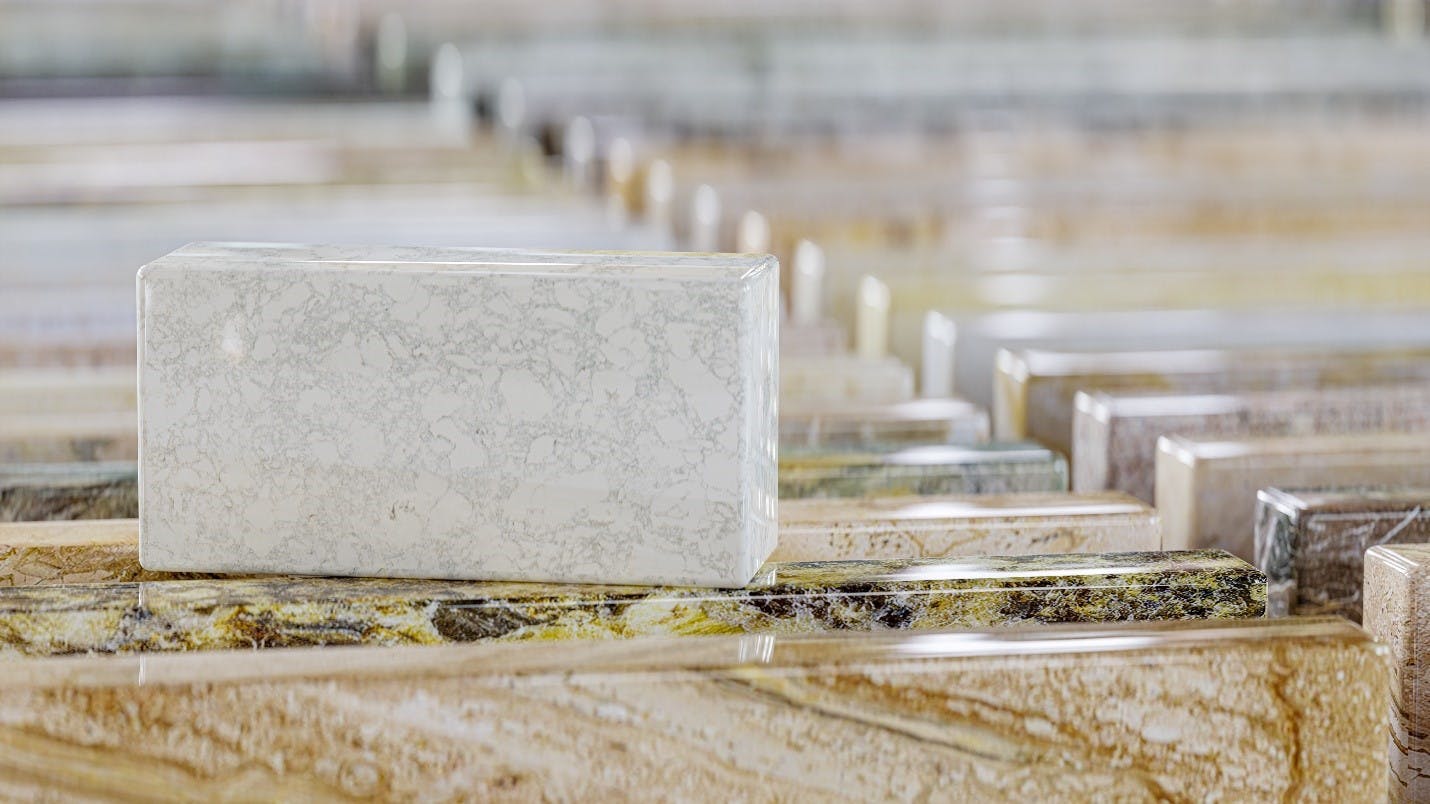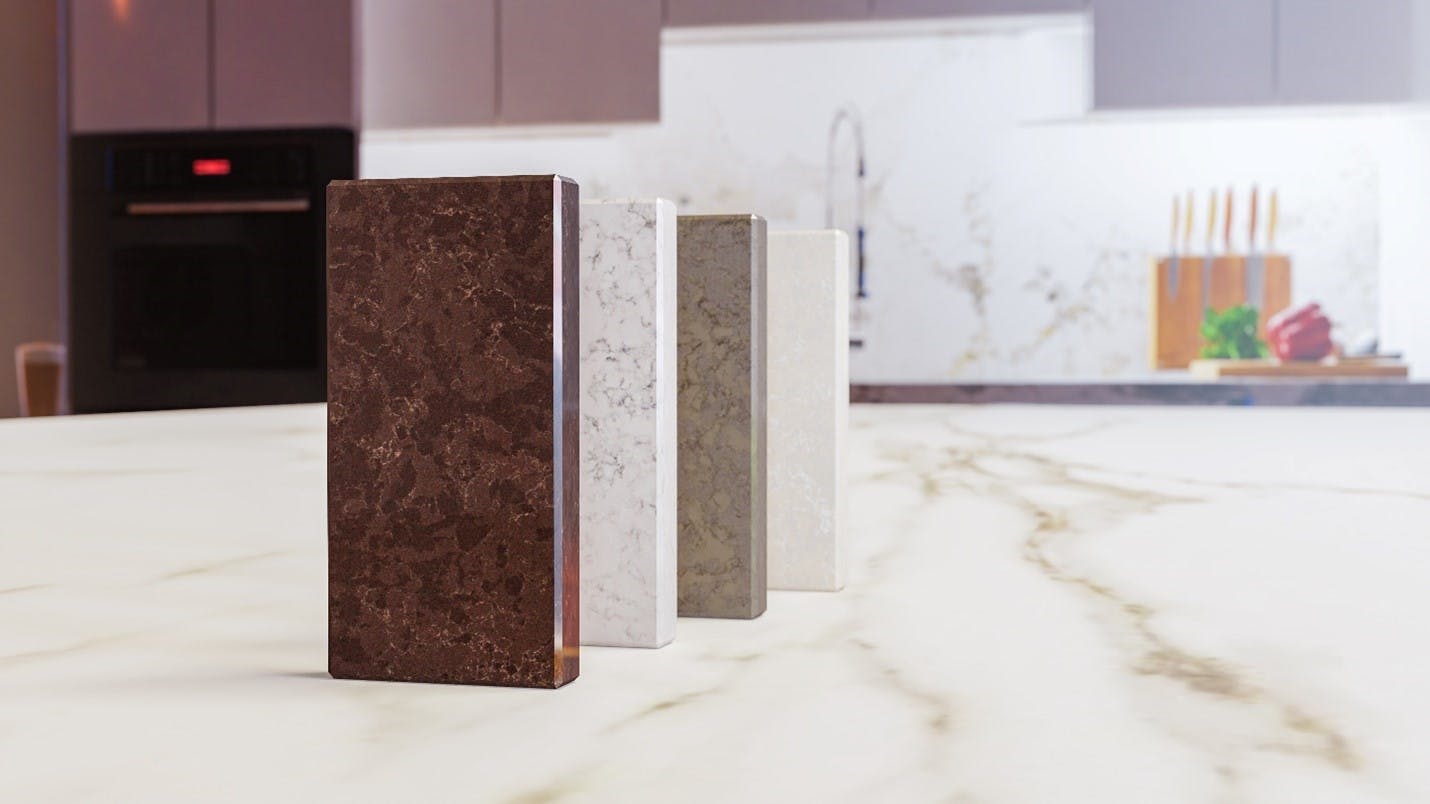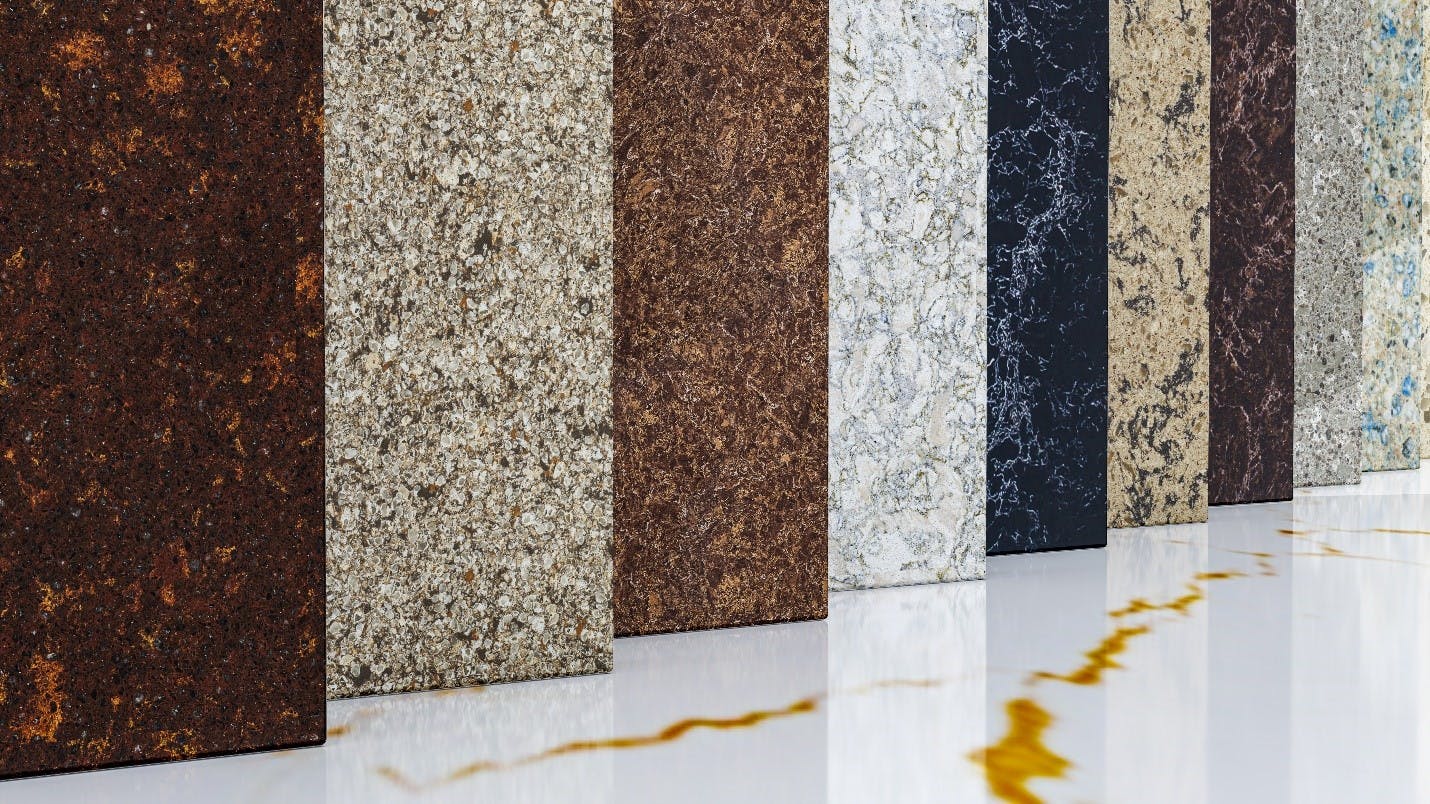The Pros and Cons of Quartz Countertops
Thinking of installing quartz countertops in your kitchen? There is a lot to consider like cost, upkeep, how it compares to other options (like granite), and the pros and cons. We’ve carefully researched and asked our pros at Fabuwood what they would recommend.
Quartz is among the pricier countertop options but requires minimal upkeep, is durable, and looks beautiful. If you’re seeking a long-lasting, virtually maintenance-free countertop with many design options, quartz is an excellent choice.
Pros of Quartz Countertops

Durability
Quartz countertops are renowned for their durability, strength, and ability to resist scratches and chips. With a 7/10 rating on the Mohs hardness scale, quartz is one of the hardest minerals there is. It is extremely strong and can stand up to years of regular wear and tear. Manufacturers often offer generous warranties for quartz due to its high durability.
Non-Porous/Stain-Resistant
Quartz is the most stain-resistant material, although it is not stain-proof, so remember to wipe up spills right away and use trivets to protect it against extreme heat. Because quartz is non-porous, it is also resistant to water damage, mold, and bacteria.
Low Maintenance
When choosing a countertop material, consider the maintenance required. Quartz counters are virtually maintenance-free – unlike natural stone, they don't need regular sealing, and the nonporous surface resists stains. Considering they were first introduced to the market as floor tiles, they are an excellent low-maintenance option.
Simple soap and water are all that's needed to keep quartz looking like new. The low maintenance nature of quartz makes it an appealing option for busy kitchens.
Consistency in Appearance
Quartz countertops are made using quartz crystals along with other materials, resulting in each piece looking the same. The precise manufacturing of quartz with high quality control means no imperfections. Compared to natural stone whose veins vary between each slab, you can be assured you’ll receive exactly what you see in the showroom with quartz.
Stylish and Made-To-Order
Quartz can mimic marble and granite and comes in a wide variety of colors that may be unattainable in other materials. It can also be highly customized to your space, such as incorporating unique angles and features. Whether you want a traditional, modern, or industrial feel to your space, quartz can be easily incorporated into any aesthetic.
Cons of Quartz Countertops

Cost
Quartz gets a rap of being one of the most expensive countertop options, as it depends on various factors such as the quality of the quartz, color, thickness, the manufacturer, the region, and the complexity of the installation. Generally, quartz is a bit more expensive than granite but pays off in the long run with its high durability and easy upkeep.
Vulnerable to Heat Damage
The resin used in manufacturing quartz can be damaged when extremely hot pans are placed directly on the counter. To avoid any stains or discolorations, it's best to use trivets and avoid placing anything out of the oven directly on the counter.
Appearance is Consistent
If you’re seeking a stone look that provides a lot of variety in the veining and coloring, quartz may not be for you. Because it is manmade, it’s uniform looking, missing the unique patterns and hues found in other stone materials.
Limited Outdoor Use
Quartz is not suitable for outdoor use as UV rays can damage the color of the countertop. Even direct sunlight inside can fade the quartz over time, so it’s important to pull down your kitchen shades or blinds when the sun is at its highest during the day.
Visible Seams
This is highly dependent on the quality of the quartz, just as with any other stone surface. Using higher-quality quartz and using the right tools can help get the seam as tight as possible. By carefully aligning the veining and colors, skilled installers can create a seamless transition between slabs.
Quartz vs. Granite: The Big Debate

Quartz and granite have long been compared as the best countertop options. Here are some clear facts to help you decide between the two:
Maintenance
Quartz: very easy upkeep and cleaning
Granite: requires resealing every 6 months, and only certain types of cleaners can be used on it
Durability
Quartz: scratch resistant and very strong
Granite: scratch resistant and very strong
Cost
Quartz: ranges from $60-$100 per sq. ft. depending on the installation and other factors
Granite: ranges from $40-$100 per sq. ft. depending on the installation and other factors
Heat and Water Resistance
Quartz: less heat resistant, highly water resistant
Granite: can stand very high temperatures, not water resistant
Resale Value
Quartz: it is currently very popular, and homeowners prefer it to other materials (even granite!)
Granite: holds the highest resale value at 25% of its retail cost
Environmental Impact
Quartz: includes natural stone as well as polymer resin, and no quarrying is required
Granite: made from 100% stone and requires quarrying. Radon emissions from granite have been a concern in the past.
Our Verdict

Quartz and granite are both considered premium materials and add resale value to your home. While each has its pros and cons, granite appeals to those who prefer the all-natural stone look and can maintain the upkeep. Quartz is better suited to those who want a uniform appearance, better durability, and easy maintenance. To start visualizing your dream kitchen, check out our Cabinet Visualizer for hands-on inspiration.
FAQS
- What’s the difference between granite and quartz?
Granite is 100% natural stone, while quartz is a mix of stone, resin, and other minerals. There is also a difference in cost, durability, maintenance, and longevity. - What’s the difference between quartz and quartzite?
Quartz is a manmade engineered material, while quartzite is a natural stone. Quartzite is better at heat resistance, though it’s porous and is more susceptible to staining than non-porous quartz. - Is quartz easy to maintain?
Yes! All it needs is regular wipe-downs with mild dish soap and water and cleaning up spills as soon as they happen. - What should I not use on quartz countertops?
Avoid scrubbing pads, rough sponges, and hard-bristled brushes. All that’s needed is a soft sponge or a cotton cloth for cleaning.
